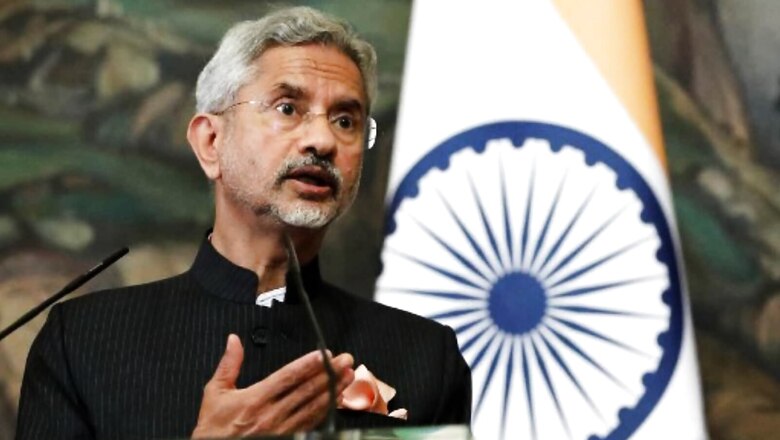
views
Spread of terrorism in Africa, as evident from the challenges in the Sahel, Somalia and central and east Africa, is a matter of serious concern, External Affairs Minister S Jaishankar said on Thursday, highlighting the need to support African counter-terrorism operations with sustained financing. The spread of terrorism in Africa, as evident from the challenges we face in the Sahel, Somalia, and central and east Africa, is a matter of serious concern,” Jaishankar said at the Security Council open debate on Cooperation between UN and Sub-regional Organisations (African Union)’.
“The initiatives undertaken by AMISOM, G-5 Sahel Joint Force and Multinational Joint Task Force (MNJTF) need more robust support from the Security Council and the international community,” he said.
The African Union Mission in Somalia (AMISOM) is a regional peacekeeping mission operated by the African Union with UNSC’s approval. As part of its duties, AMISOM supports the Somalian forces in their battle against Al-Shabaab militants.
The G-5 Sahel Joint Force is a task force launched by Mali, Burkina Faso, Niger, Chad and Mauritania in 2017. It fights against violent extremism and organised crime in the region. MNJTF is a combined multinational formation, comprising units, mostly military, from Benin, Cameroon, Chad, Niger, and Nigeria.
Headquartered in Chad capital N’Djamena, it is mandated to bring an end to the Boko Haram insurgency.
India endorses the call of Secretary General Antonio Guterres to support African counter-terrorism operations with sustained financing, including through assessed contributions, Jaishankar said.
He said because of its own experience, India appreciates that the root cause for conflicts in Africa lie in its colonial history.
Proposing key points for consideration, Jaishankar said on matters related to peace and security, the Security Council should respect the regional approach adopted by countries involved, and work in collaboration with regional organisations to address these shared challenges.
He further said UN Peacekeeping Operations and Special Political Missions need to be sufficiently mandated and resourced to implement respective mandates.
Our experience in peacekeeping in Africa shows that missions often struggle to implement ambitious mandates. Peacekeeping missions should have a clear and well thought out exit strategy, Jaishankar said.
He noted that while UN-AU strategic partnership has grown over the years, collective peacebuilding efforts still lag behind in other areas.
A more meaningful peacebuilding partnership between the UN and the AU, based on inter-institutional cooperation that focusses on harnessing comparative strengths to complement each other in pursuing the ultimate goal of peace and security in the region is needed, Jaishankar said.
In order to resolve the issues that divide the UNSC and the AU Peace and Security Council (AU-PSC), the external affairs minister said it is important to re-energise and strengthen liaison mechanisms.
A3 members – the three African non-permanent members of the UNSC, can play an important role in this regard, he said adding that while deciding on the appointments of Special Envoys of the Secretary General or the draw-down of ongoing peacekeeping and political missions, it is important to consider the views of the regional member states.
Read all the Latest News , Breaking News and IPL 2022 Live Updates here.




















Comments
0 comment